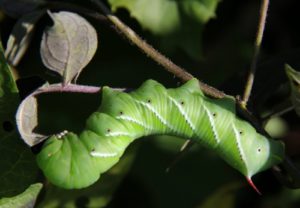 In southeastern Arizona Datura wrightii is the preferred source of nectar for the moth Manduca sexta and you may also notice that the caterpillar, the tobacco hornworm, devours the foliage of Datura, when of course, it’s not in your garden eating your tomato plants or other plants in the nightshade family. Manduca sexta moths are also known to visit blooming Agave palmeri, especially when the Datura has stopped flowering. Manduca means glutton and the larvae are! The species name sexta refers to the 7 stripes found on the sides of the caterpillar. The green body and the white stripes are amazing camouflage when they are eating your tomato plant. The rascals are hard to find!
In southeastern Arizona Datura wrightii is the preferred source of nectar for the moth Manduca sexta and you may also notice that the caterpillar, the tobacco hornworm, devours the foliage of Datura, when of course, it’s not in your garden eating your tomato plants or other plants in the nightshade family. Manduca sexta moths are also known to visit blooming Agave palmeri, especially when the Datura has stopped flowering. Manduca means glutton and the larvae are! The species name sexta refers to the 7 stripes found on the sides of the caterpillar. The green body and the white stripes are amazing camouflage when they are eating your tomato plant. The rascals are hard to find!
Every few years, at least around us in the desert grassland, the caterpillars of the white-lined sphinx moth appear in abundance. They aren’t a problem however and seem more interested in eating wild plants in the 4 o’clock family than anything in our garden. The caterpillar season seems short and soon those that have not been squashed or eaten dig very shallow holes to crawl into and pupate. Around our place the adult, the white-lined sphinx moth, is fun to watch in the early evening blasting into hooker primrose flowers just as they open. We had neighbors drop by one evening and they wondered why the Mesquitey clan was all gathered around a tall hooker primrose plant. We invited them to observe the flowers unfurling and the sphinx moths hitting them. “Well, I’ll be,” and they settled in for some serious moth watching.
A couple notes: both Manduca sexta and Hyles lineata are found all over North America. The photos are of a tobacco hornworm (huge!) and a white-lined sphinx moth (they come in other colors, btw). I learned that the tobacco hornworm (Manduca sexta) is more common around us than the tomato hornworm (Manduca quinquemaculata). Cool! Now I know.
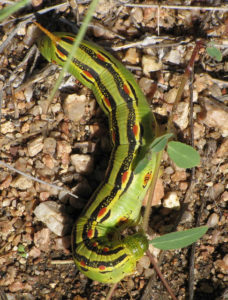
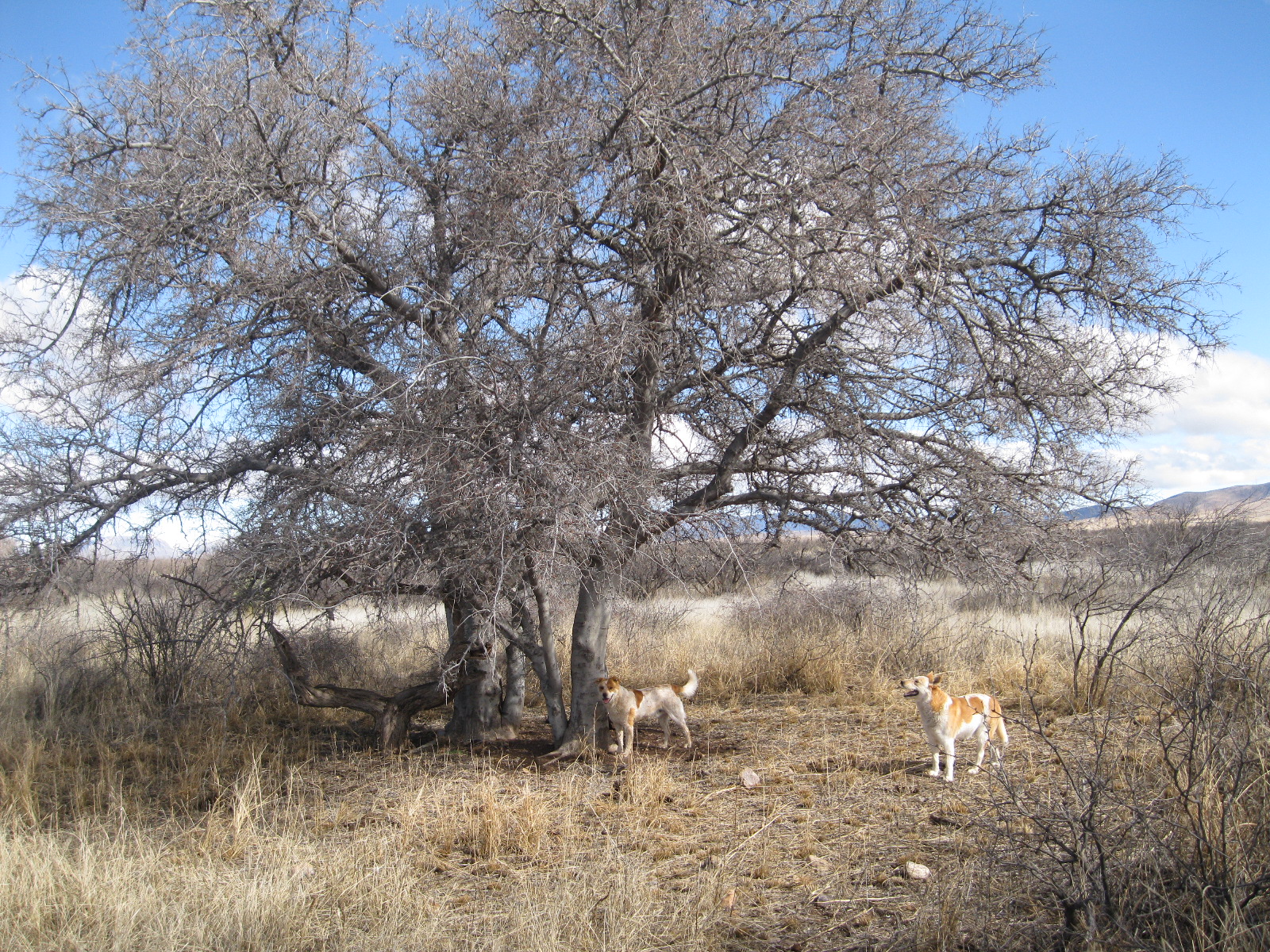
According to Petey canyon hackberry trees beg to be hugged. Oh dear.
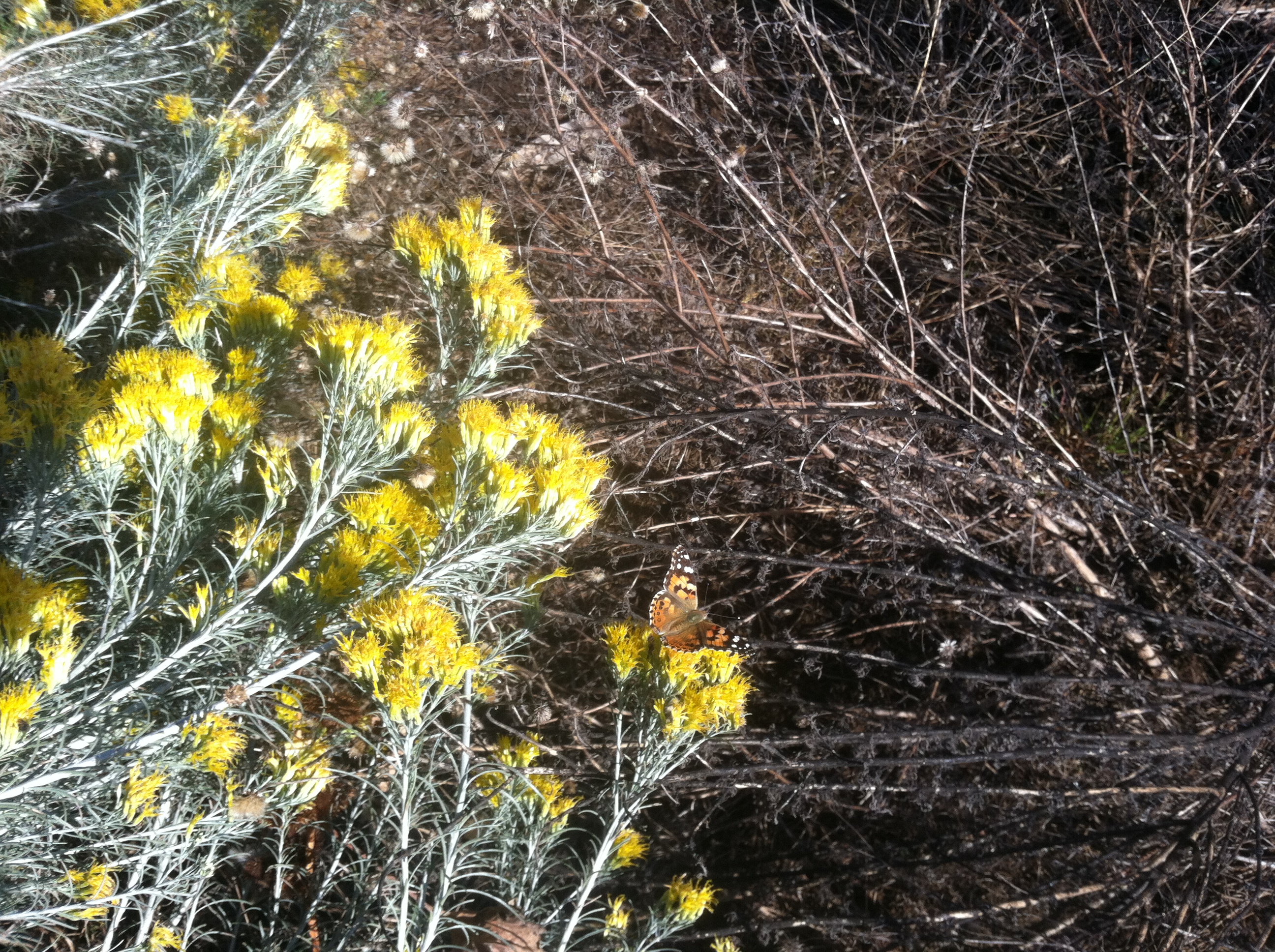
While admiring a blooming rubber rabbit brush Petey finds many butterflies feeding on nectar and he gets very excited. What’s new?
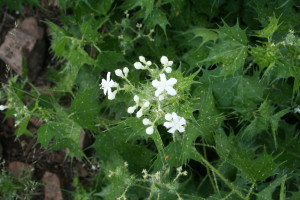
Mala Mujer or Cnidoscolus angustidens is an interesting plant in Euphorbiaceae, the spurge family. It’s found in southeastern Arizona and south into Sonora on...